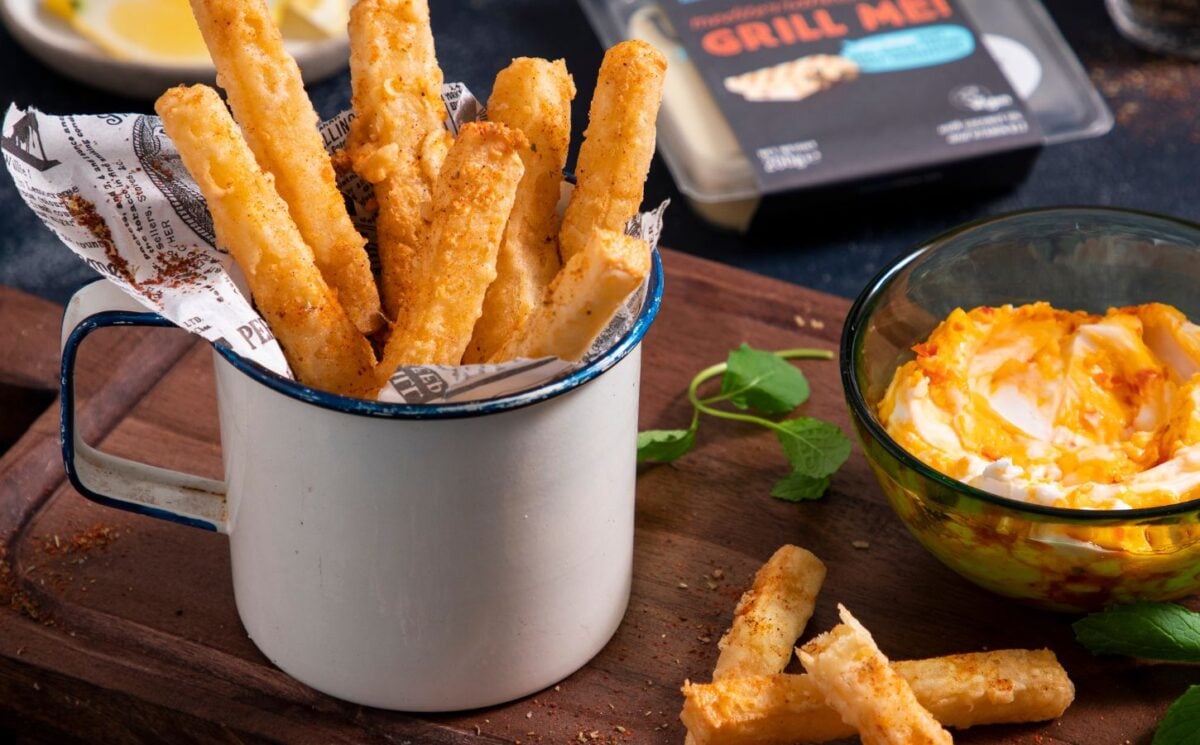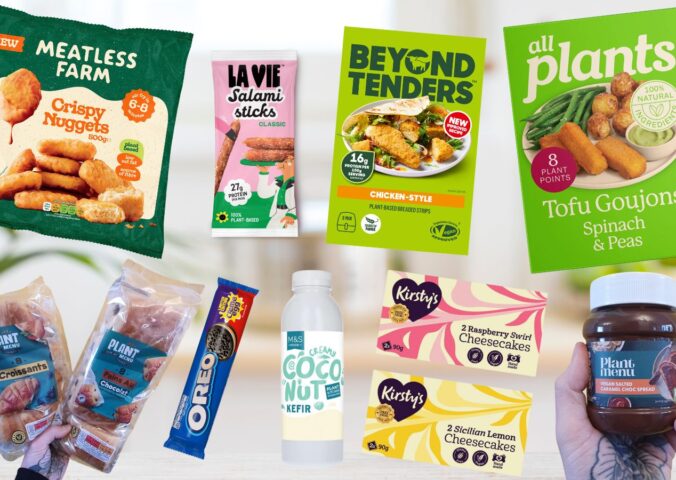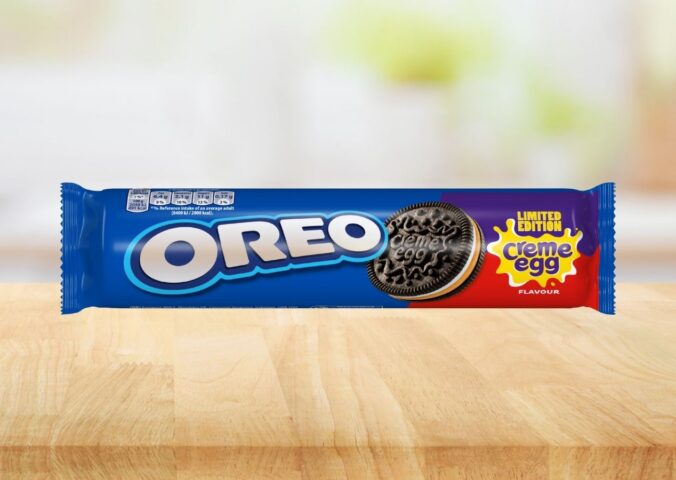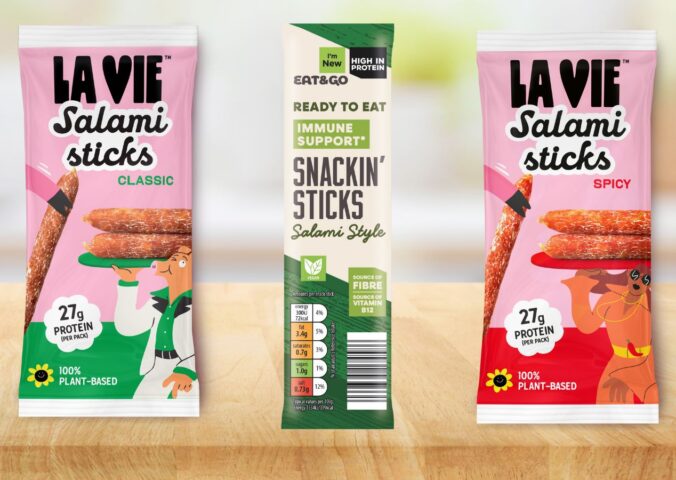Anyone who had a layover in vegetarianism before becoming vegan will be familiar with halloumi. It’s the salty cheese that squeaks when you chew it and was once a popular replacement for beef burger patties and battered fish before plant-based meat got good.
Originating from Cyprus, halloumi is traditionally made from goat’s milk and/or sheep’s milk, but increasingly has been made using cow’s milk. It’s slightly firm and keeps its shape when heated, rather than melting, which is why it’s suitable for frying or grilling.
Demand for halloumi is growing; exports, mainly to the UK, Sweden, Germany, and Greece, rose by 43 percent between 2017 and 2019. In fact, it makes up a fifth of Cyprus’ export market. Due to its popularity and profitability, Cypriot dairy farmers have dubbed the cheese “white gold.”
But for the animals whose milk is required for the cheese, things are less rosy. As with any dairy product, there are many good reasons why you might want to opt for a plant-based version instead.
Here’s everything you need to know about halloumi and how it’s made, plus the best vegan alternatives.
What is halloumi?
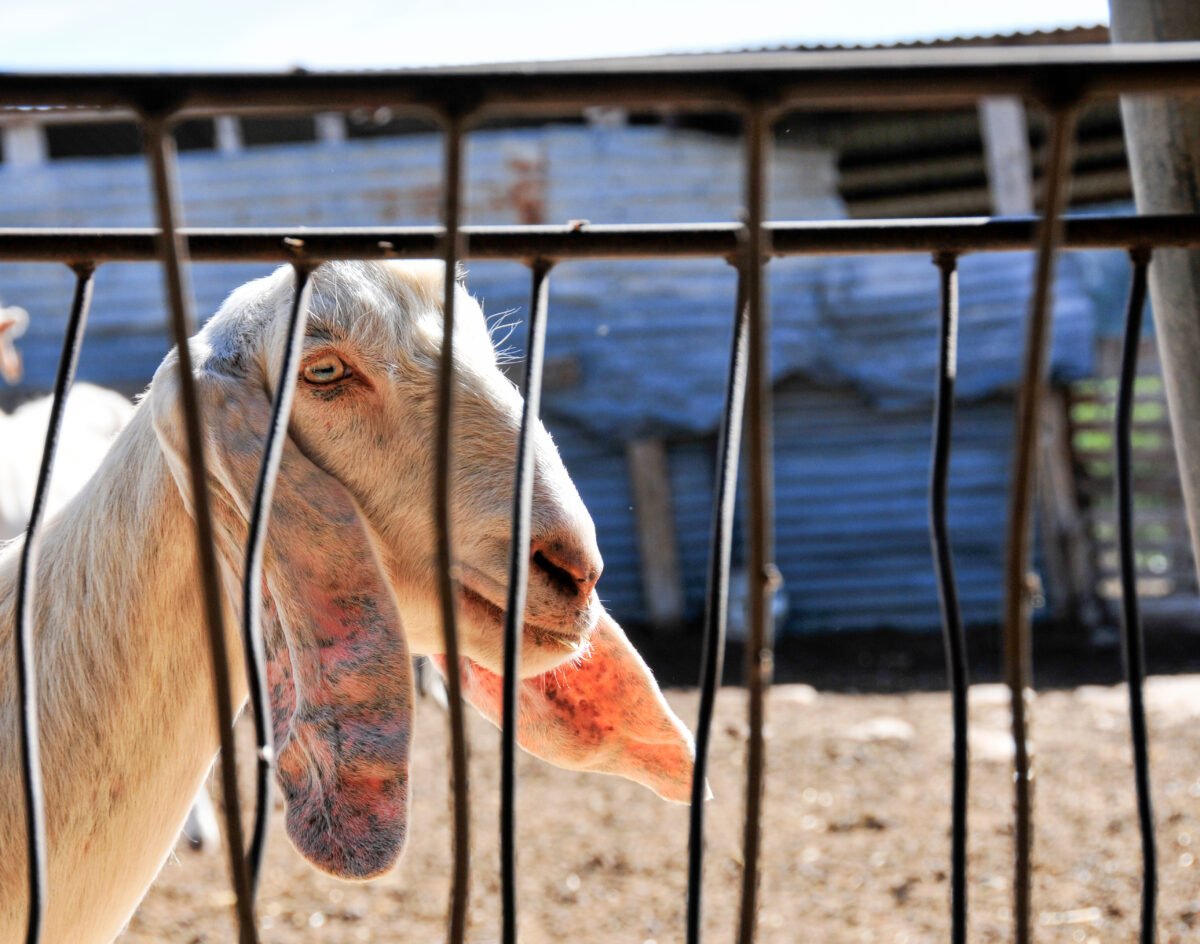
Halloumi was once made exclusively using milk from sheeps* or goats in small batches. As it has grown in popularity, large dairies have started producing it in a standardized way. Once cows were introduced to Cyprus in the early 20th century, more cow’s milk was added to halloumi recipes. Some types now contain as much as 95 percent cow’s milk – though soon they will not legally be allowed to be called halloumi.
In 2021, the European Commission granted halloumi protected designation of origins (PDO) status. This means the name can only be used for cheese made in Cyprus that contains at least 51 percent goat’s or sheep’s milk. Producers have several more years to reduce the amount of cow’s milk in their cheese.
Vegetarians might be surprised to learn that making halloumi traditionally requires the use of rennet. This ingredient is a set of enzymes that come from rennin, which is made in the stomachs of ruminant animals. Rennet is used to curdle milk and separate he curds from the whey for cheese-making.
Rennet comes from the fourth stomach lining of young and unweaned baby animals, including calves, goat kids, and lambs. These baby animals are often killed for meat, and will have their stomachs removed to make rennet.
The realization that animals are slaughtered to make rennet-containing cheeses such as parmesan has pushed many people to say they will give up cheese.
Unethical dairy
Apart from the use of rennet, making halloumi has other ethical costs. As with all dairy, halloumi production involves slaughter and forced artificial insemination.
One family-run Cypriot goat farm has about 2,000 goats being milked twice a day. To improve productivity, the goats are selectively bred using artificial insemination. This involves forcibly impregnating females so that they have babies three times within a two-year period. The aim of this increased rate of reproduction is to maximize the amount of milk and meat produced.
To further increase the amount of milk that can be taken from the female goats, their children are immediately removed from them at birth and confined to artificial rearing units. In place of their mother’s milk they are given colostrum, taken from mother goats, for two to three days and then artificial milk replacer for six weeks.
Goats are very sociable animals, and kids would naturally stay with their mothers until they are about a year old.
Though Cyprus is the only place producing “authentic” halloumi cheese, many producers in other countries seek to emulate it. Halloumi “style” cheese is produced in countries including the UK, where the dairy industry is rife with animal abuse.
Investigations into cow dairy farms have uncovered workers being violent and neglectful towards cows and calves. This includes an award-winning organic dairy farm. Goat dairies are no better, with one investigation revealing the “unregulated” killing of unprofitable baby goats and animals denied access to outdoor areas.
Lack of animal protection
Farmed goats in Cyprus used to be free-roaming. But British colonizers assumed they were to blame for the lack of trees on the island and implemented the 1935 Goat Law restricting where goats could graze. According to the Cyprus Mail, this law has contributed to the goats of Cyprus being kept in pens and fed in stalls.
Meanwhile, Cyprus has very little in the way of animal protection laws, particularly for farmed animals. It was only in 2019 that animal welfare legislation was amended to even prohibit permanently keeping companion animals chained up.
Yet the number of goats and sheep in Cyprus is set to grow due to the PDO status of halloumi. In order to meet the requirement of the goat’s or sheep’s milk ratio, the government has approved the number of goat and sheep farmers and breeders to more than double. Farmers are also working to increase the productivity of animals, according to the agriculture minister.
Plant-based halloumi alternatives
Halloumi has been a tricky cheese to replicate from plant-based ingredients. But vegans missing the texture and umami flavor of halloumi do have some options, including making it themselves.
Here are the store-bought halloumi alternatives.
Tesco Plant Chef Alternative To Halloumi
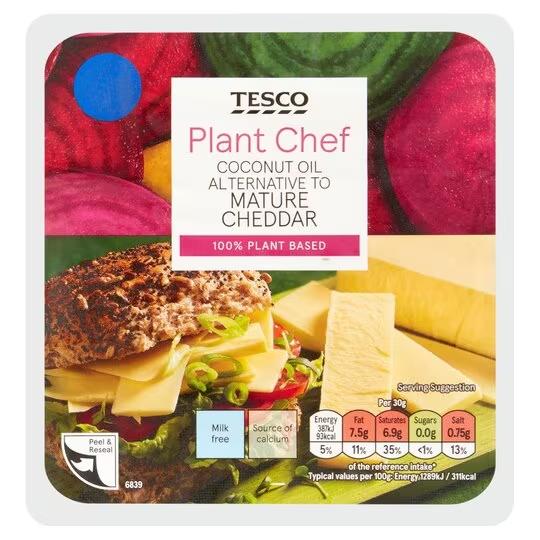
Tesco has made its vegan halloumi from potato starch, coconut oil, and lentil protein. It’s said to fry and grill pretty well, giving a crispy outside and melted inside. Still, the reviews on Tesco’s website are pretty mixed, so temper your expectations.
GreenVie Vegrill
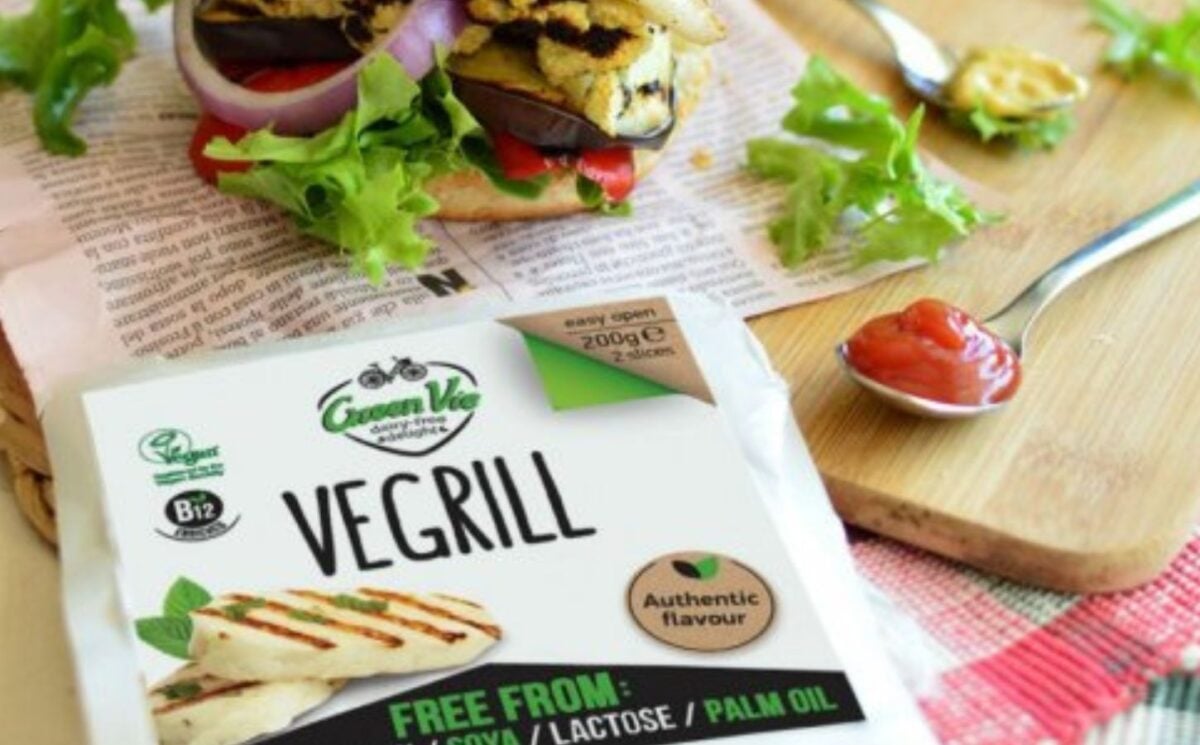
GreenVie is a plant-based cheese company located in none other than Cyprus. It’s “Vegrill” halloumi alternative is made from vegetable starch, coconut oil, chicory root extract, and fava bean protein. It’s fortified with B12 and free of the 14 main allergens. A touch of spearmint gives it a more authentic flavor, since mint is traditionally added to halloumi.
Vegrill comes in two round slices which GreenVie suggests grilling for burgers, wraps, and salads. It’s available online at Amazon and alternativestores.com.
Violife Mediterranean Style Block Non-Dairy Cheese Alternative
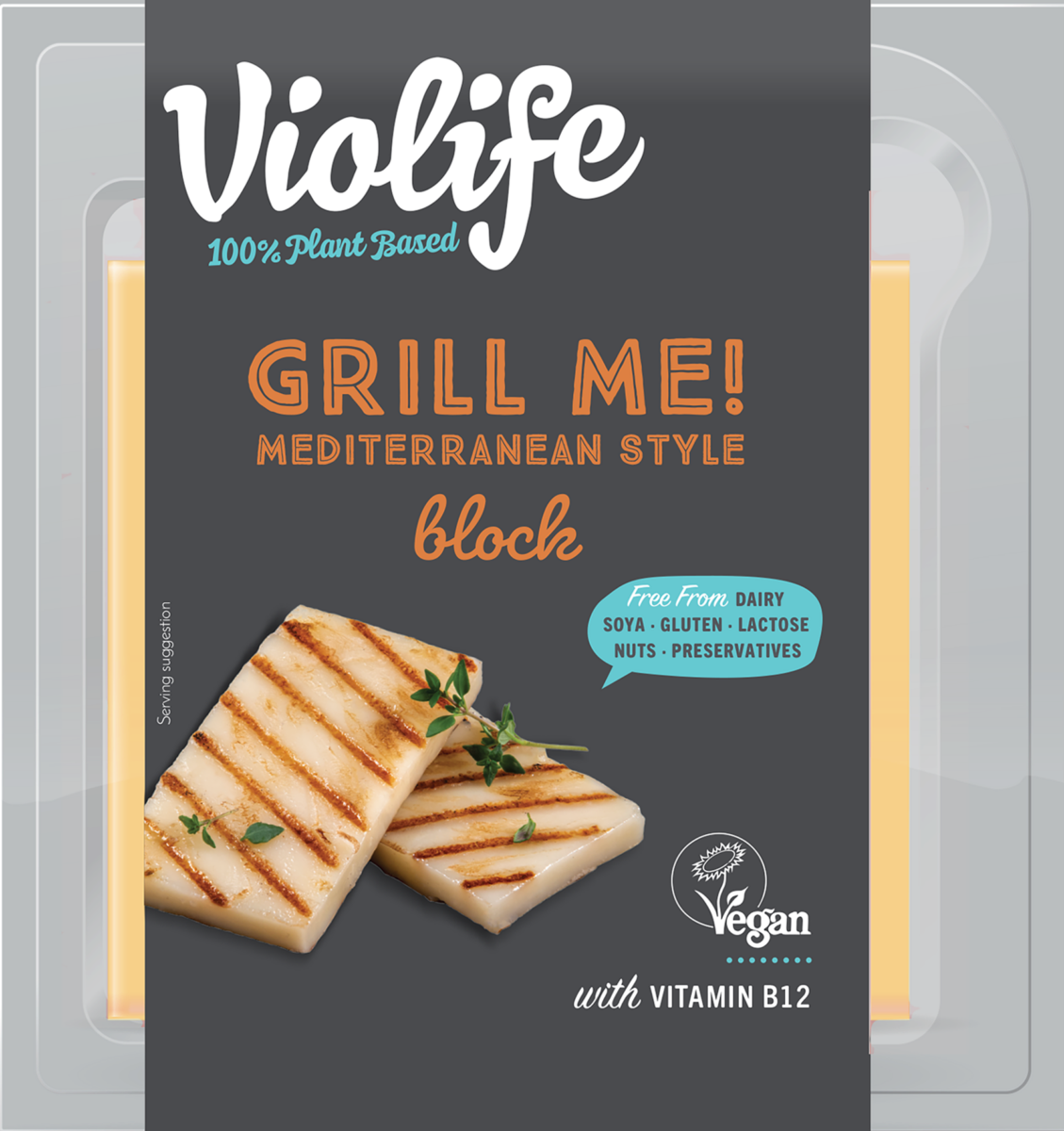
The name of this halloumi alternative doesn’t exactly roll off the tongue. But with one reviewer saying, “It bakes exceptionally well … [and] has a lovely, nutty taste,” it should make a good halloumi substitute. Violife describes it as “perfect grilled with a Greek salad for an alfresco lunch or tapas style snack.”
Made with coconut oil, starch, and fortified with B12, it comes in two slices and is available from Ocado.
Halloumi recipes
If you want to have a go at making vegan halloumi yourself, well-drained tofu is the key ingredient to use. Getting the liquid out of tofu helps it to grill or fry to crispy perfection, and can be done with a tofu press or some heavy books and a tea towel.
In this recipe from BOSH!, firm tofu is marinaded in lemon juice, olive oil, nutritional yeast, dried mint, garlic powder, and a pinch of salt. Once the tofu has had several hours to soak up the flavors, bake it in the oven for 25 minutes.
This recipe from The Hidden Veggies uses a similar process, and includes apple cider vinegar in the marinade ingredients.
This one from Mad Millie uses cashew nuts – a popular base for homemade cheese. You soak and blend the cashews before cooking the paste to thicken it up tapioca flour, olive oil, and seasoning. It then goes in the fridge to set, after which you can cut it into rectangles for frying.
* While the English language typically refers to multiple sheeps as “sheep,” we choose to use “sheeps” to emphasize their individuality.
